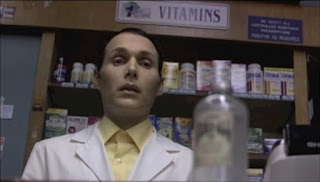Polish Cinema: Short Working Day (Krzysztof Kieslowski, 1995, Poland)
Short Working Day is one of the least seen and least commented upon films in Krzysztof Kieslowski’s filmography, and it is easy to understand why. Shot in 1981, this TV film was not released in Poland until 1996, although it was shown occasionally on the theatrical circuit. Kieslowski was apparently happy that the film was never broadcast, as he was critical of Short Working Day. It is one of his most overtly political films, relaying the June 1976 protests in Poland against Prime Minister Piotr Jaroszewicz’s increase in commodity prices. In particular, it is a fictionalized version of the protest in Radom, which was the most dramatic of all the June protests - an all-day siege of the PZPR headquarters which involved some 20,000 people.
Short Working Day undoubtedly rubbed Polish audiences the wrong way in that it is told almost entirely from the perspective of the First Secretary of the Radom Committee, played by Waclaw Ulewicz. We experience the events of the protest from his perspective, often literally in wide shots from the windows of the office building. We are also given his internal narration throughout the film, as he tries to quell the protest. He doesn’t want to be perceived as impotent, yet we see how much he relies on the authorities above him in Warsaw. There are some funny moments, in which he feeds the office goldfish while the world around him literally goes up in flames. It is not entirely clear if Kieslowski is sympathetic to the Ulewicz character, and this is perhaps conceived as one of the film’s major weaknesses.
While Short Working Day is perhaps not so effective as a character study of a communist apparatchik, it is very successful as a historical document, showing how the events of 1976 led to Solidarity. Kieslowski does this by occasionally focusing on a character in close up, and then showing what happens to them in the future.
7/10



Comments
Post a Comment